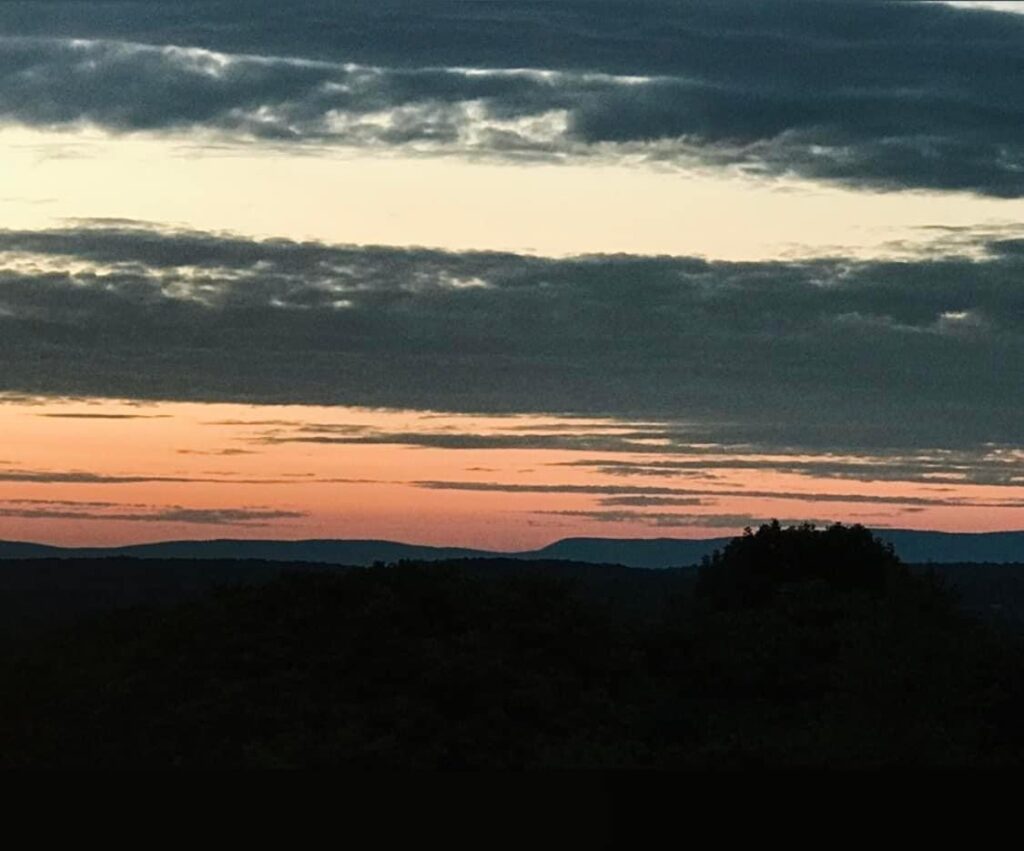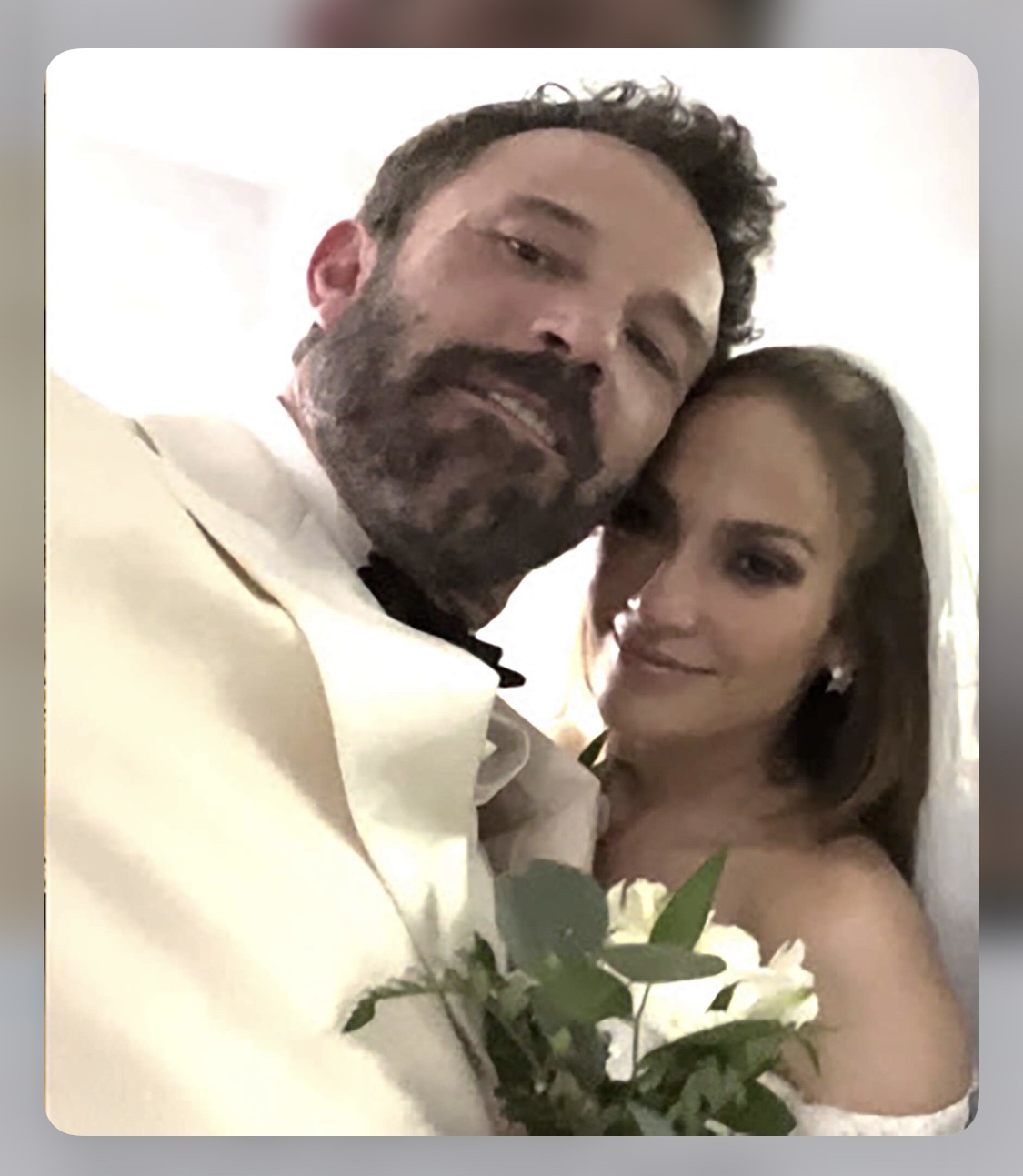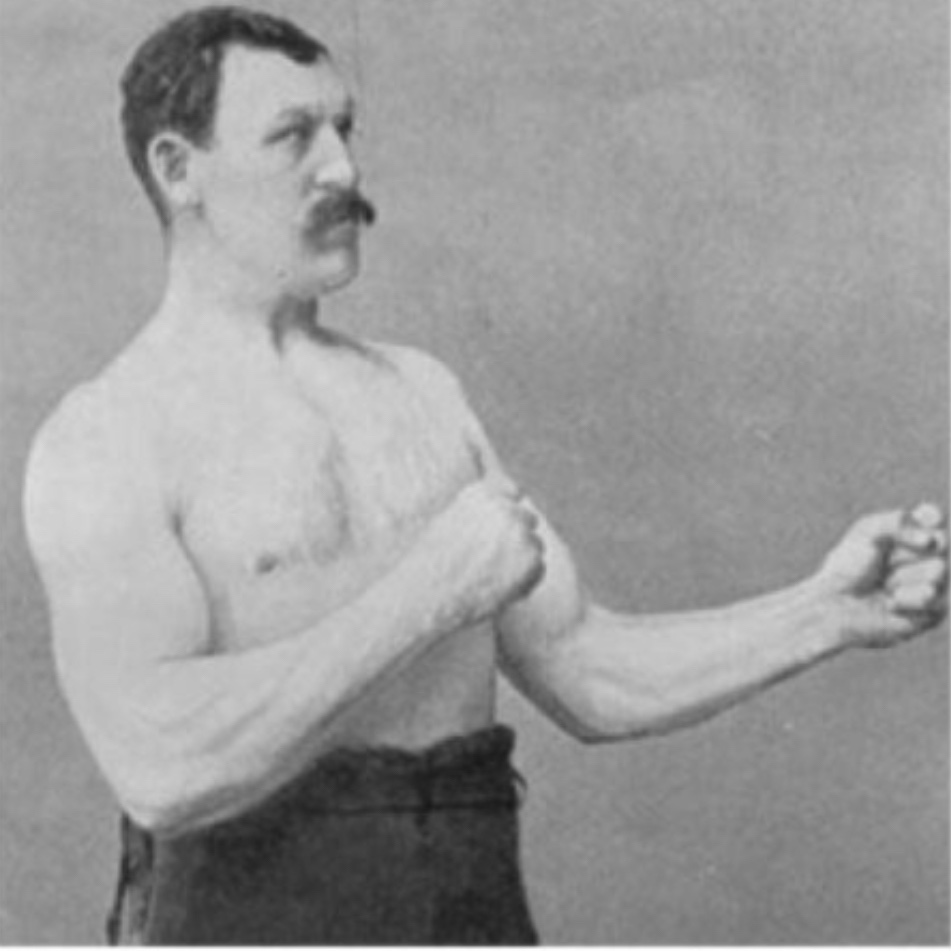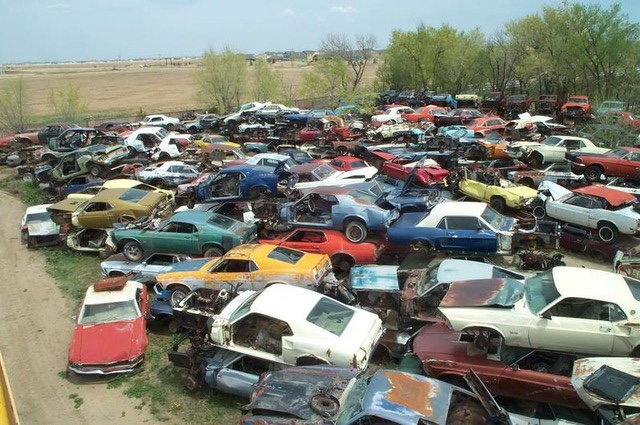
She was a small-town girl from a dirty industrial city in the north. Her dad worked in the factories and drank too much. He’d get drunk and mad and tell her she’d better get the hell out of there first chance she got and make a life for herself and not to expect much from him or the family or that grimy town. The only time she saw her dad cry was when her uncle, dad’s older brother, came home from Vietnam in a box. Dad was 4F, blind in one eye from a farming accident as a child. She could never tell what hurt him worse, losing the eye or the fact he couldn’t go be a soldier like his big brother.
Elementary school was pretty simple. She grew up in the Cold War era and spent more than her fair share of time huddled under her desk during air-raid drills wondering what good a piece of plywood would do her against a nuke. She was often equally scared and sad that some men had the power to blow up her world when she hadn’t even kissed a boy yet, but she would. She sang in the school chorus and didn’t like to sweat and may have liked a boy or two, but for the most part found them dirty and smelly and annoying.
That changed a bit by the time she got to high school. She was tall and thin and pretty and someone, a girlfriend, suggested and pushed her to be a cheerleader. She hated it and the whole idea of girls in really short dresses on the sidelines of any event, as fluff or eye candy.
She was forced to read in her younger grades but came to love the works of Steinbeck in her late teens. Perhaps she saw a tie back to her battered down father and the characters in The Grapes of Wrath. She was comfortable and grateful for her humble and middle-class upbringing of the northern town.
In the eleventh grade, she dated a boy. A tall handsome boy, quarterback of the high school football team. He was black; she was white. It caused a lot of problems for her and the boy. She didn’t understand it, still doesn’t to this day. He seemed to understand it fully. She wondered out loud to him on their last night together if their love was as big a crime to his family as it was to hers. He said sadly it was. Since kindergarten, the grimy little town was to her always something of a melting pot. The kids all played together and fought with each other and made up and ran off and broke laws and rules together. But she learned there were lines that were not to be crossed. An unspoken set of rules that were not to be broken. These weren’t just her father’s rules, it seemed they were everyone’s rules. She may have actually loved her football player. It may have broken her heart. She read The Scarlet Letter and Catcher In The Rye and those books made more sense to her than the little town she called home.
After high school and with little direction, she quickly tired of jobs in grocery stores and bars and getting high on weed and drunk and riding around in cars and sex on back roads and packed up her things one day and said goodbye to her father and the life he hated and the grimy town and left for Florida.
She didn’t find much better work in Florida than what she’d left behind, but the weather was better, and boys were tan, and she loved the beach. She met a young man; he seemed ambitious and before long they married and he bought a fishing boat, a big boat and he’d be out at sea with his crew for weeks on end and she didn’t really mind. Perhaps it was Florida and that vibe, but she discovered Ernest Hemingway and fell in love with his work. Soon she had a son and soon after another and the joy of the beach and the life on the coast faded as she succumbed to loneliness and took a lover. A boy who worked on the docks who was as unthreatening as he was lazy. Her husband seemed to not notice, or care, and she lost herself in her boys and her books and the lazy dock boy. Her husband reminded her in ways she didn’t find pleasant of her father, now dead back home in the north. She learned to hate fish, and anything related to fish and fishing.
Often, when her husband was out to sea, she’d find herself wishing he’d not return, that the ocean take him. But the sea was a fickle co-conspirator and one day she loaded up the Chevy station wagon and her sons and her books and left, somehow landing in Lawrence, Kansas. A place that was neither north nor south or east or west, just a place that was different from South Florida and her grimy hometown.
Needing income for herself and her boys, she put herself through school and worked three jobs to become an RN. It wasn’t easy, but she was strong and proud and for the first time in her life, fully in charge of her life. She liked that. She watched her boys grow, and she liked her life and time was finally her own. She didn’t like Kansas much, but her sons settled there and married, and she became a grandma and she didn’t dislike Kansas enough to leave.
Still working now in hospital administration, pondering retirement, she enjoys her time alone with her books and words. She watches the world unfold now in a horror she can’t explain, enjoys movies and TV shows that don’t make her think. She spends her free time alone, no longer trusting those who run things. No longer able to understand the things people see as just. She thinks about the football quarterback and how much the world has changed and how much it’s stayed the same, or maybe gotten a bit worse. She still hates fish.




